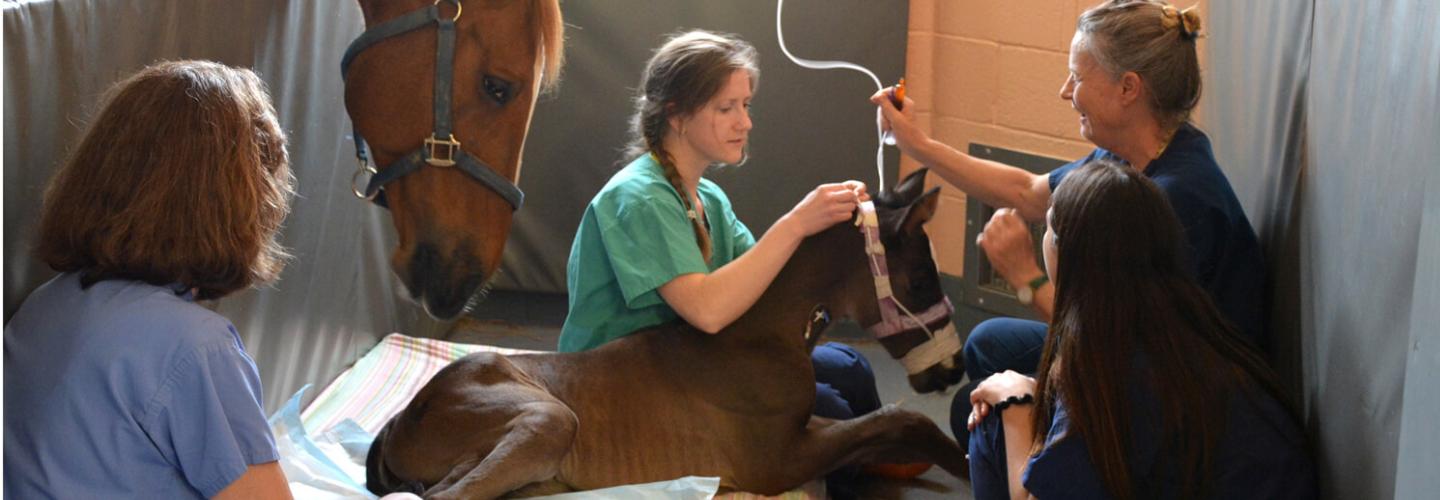
Neonatal Intensive Care Service
What we do
The Neonatal Intensive Care Unit (NICU) is staffed by neonatologists and dedicated, specially trained, veterinary technicians, who work on site around the clock to care for neonates and pregnant animals.
The Moran Critical Care Unit is designed to accommodate the special needs of critically ill neonates as well as pregnant animals at increased risk for complications to provide their babies with lifesaving critical care even before birth begins.
Delivering intensive care as soon as a problem is recognized is important when caring for neonates (newborns during their first month of life) to achieve a successful outcome. Critically ill neonates, especially foals, are often admitted to the NICU in the middle of the night, receiving intensive care within hours of birth.

Our Services
Responsibilities, Equipment, and Patients
Our Services
Responsibilities, Equipment, and Patients
Moran Critical Care Unit
The Moran Critical Care Unit at Penn Vet’s New Bolton Center accommodates the needs of critically ill neonates. Specially designed stalls allow mares to have contact with their critically ill foals without disrupting the neonate’s medical care.
Special equipment:
- In-stall oxygen and other medical gases
- Mechanical ventilation for respiratory failure
- Electrocardiography (ECG)
- Capnography and pulse oximetry
- Blood pressure monitors
- Intravenous infusion pumps
- Telemetry for fetal heart rate monitoring
- Facilities to hoist and sling mares with special problems or needs during foaling
- Specially designed facilities that allow for efficient administration of fluids
- Forced hot-air warming
- Multiple imaging modalities, including ultrasound, radiography, MRI, and CT scan
- Specially designed crash cart, respiratory equipment, and a defibrillator for cardiopulmonary resuscitation (CPR) in the event of cardiac or pulmonary arrest
The Neonatal Team Approach
The members of this service coordinate with the entire New Bolton Center team and can assemble within minutes when needed to attend a difficult birth, which allows them to begin lifesaving care for the often critically ill neonate during delivery.
The team also includes members of the Sections of Reproduction (obstetricians), Emergency and Critical Care (surgeons) and Anesthesiology, as well as many other members of the hospital support staff.

